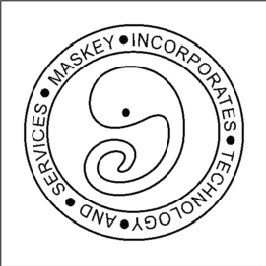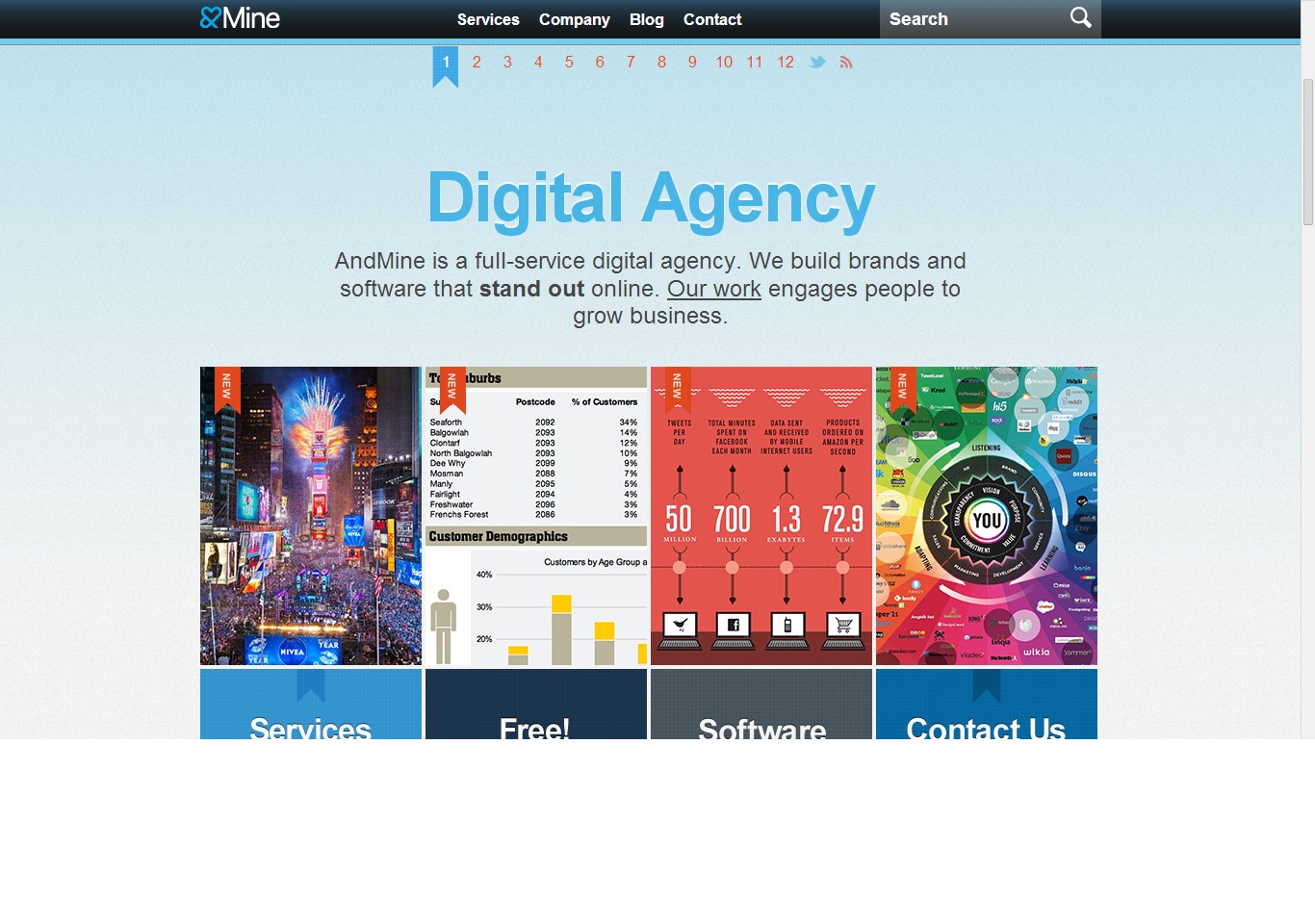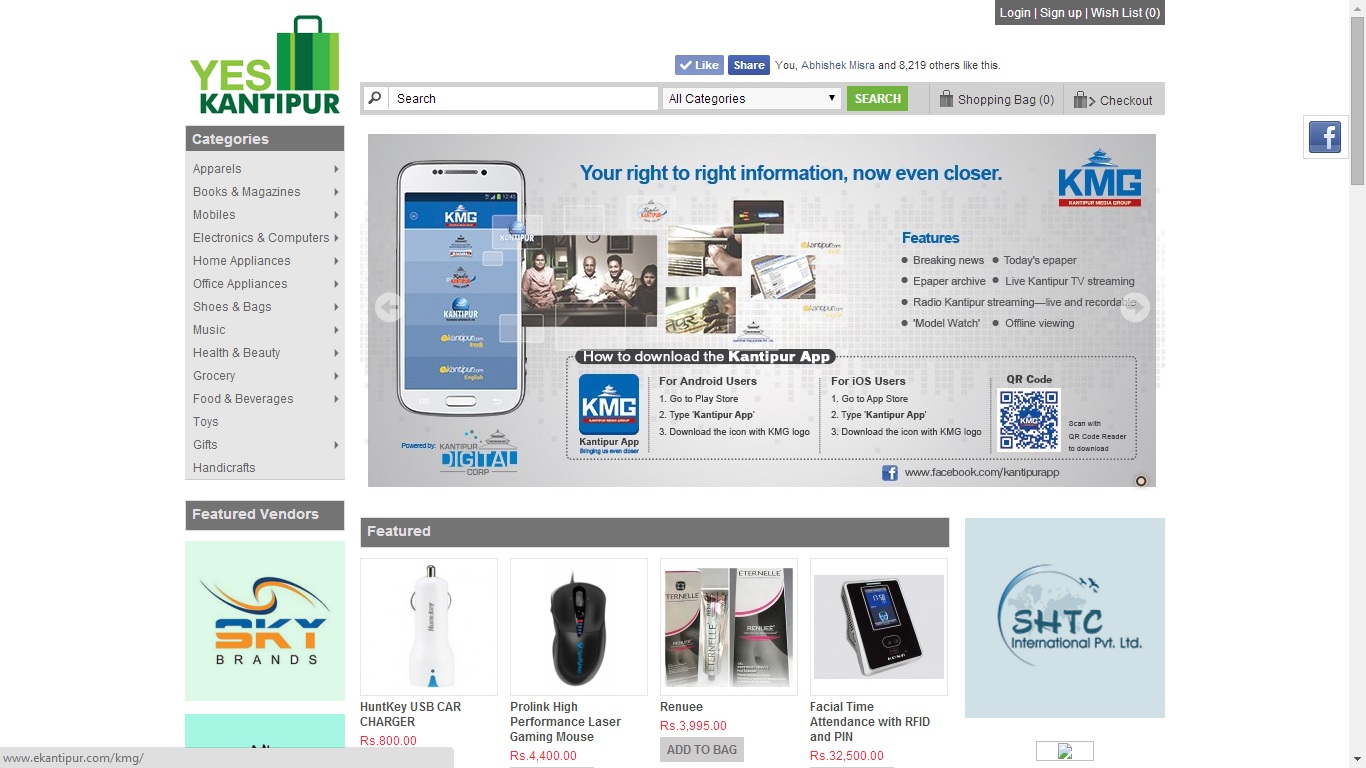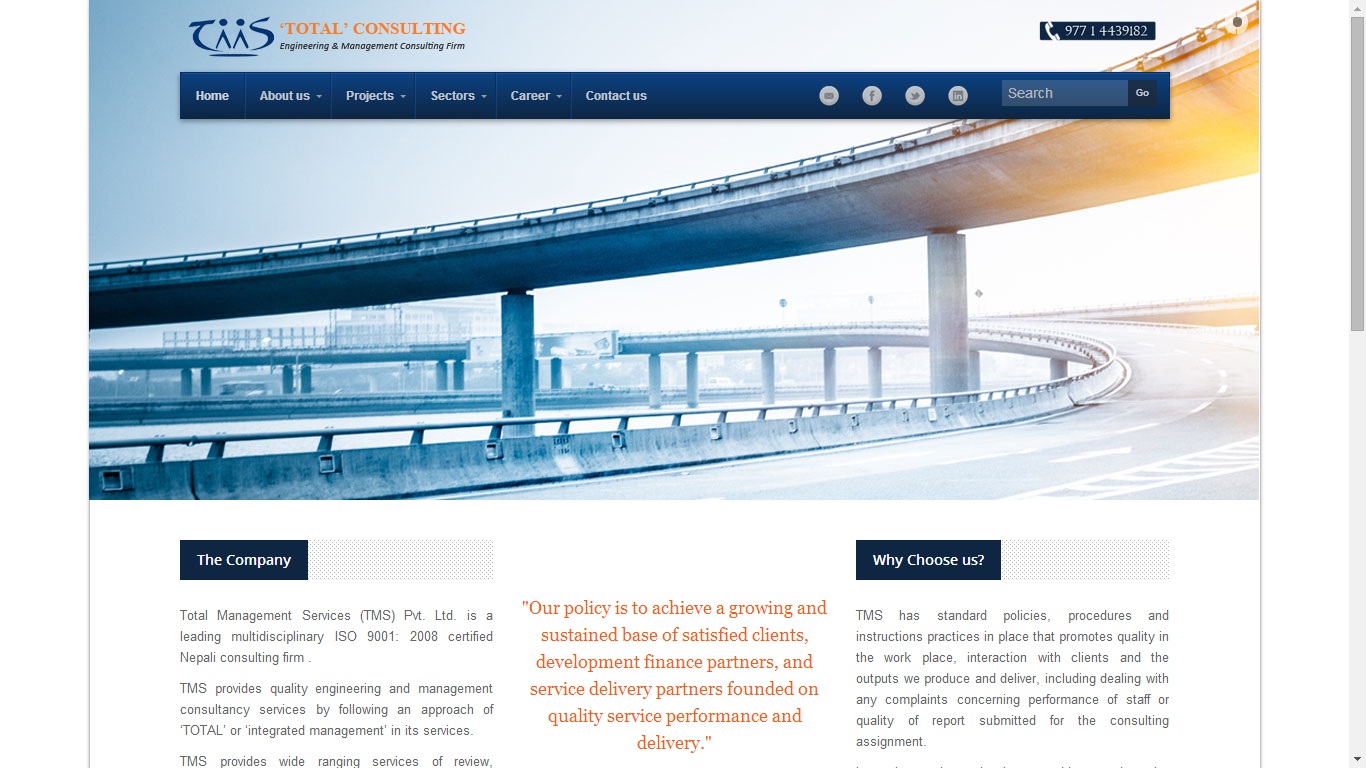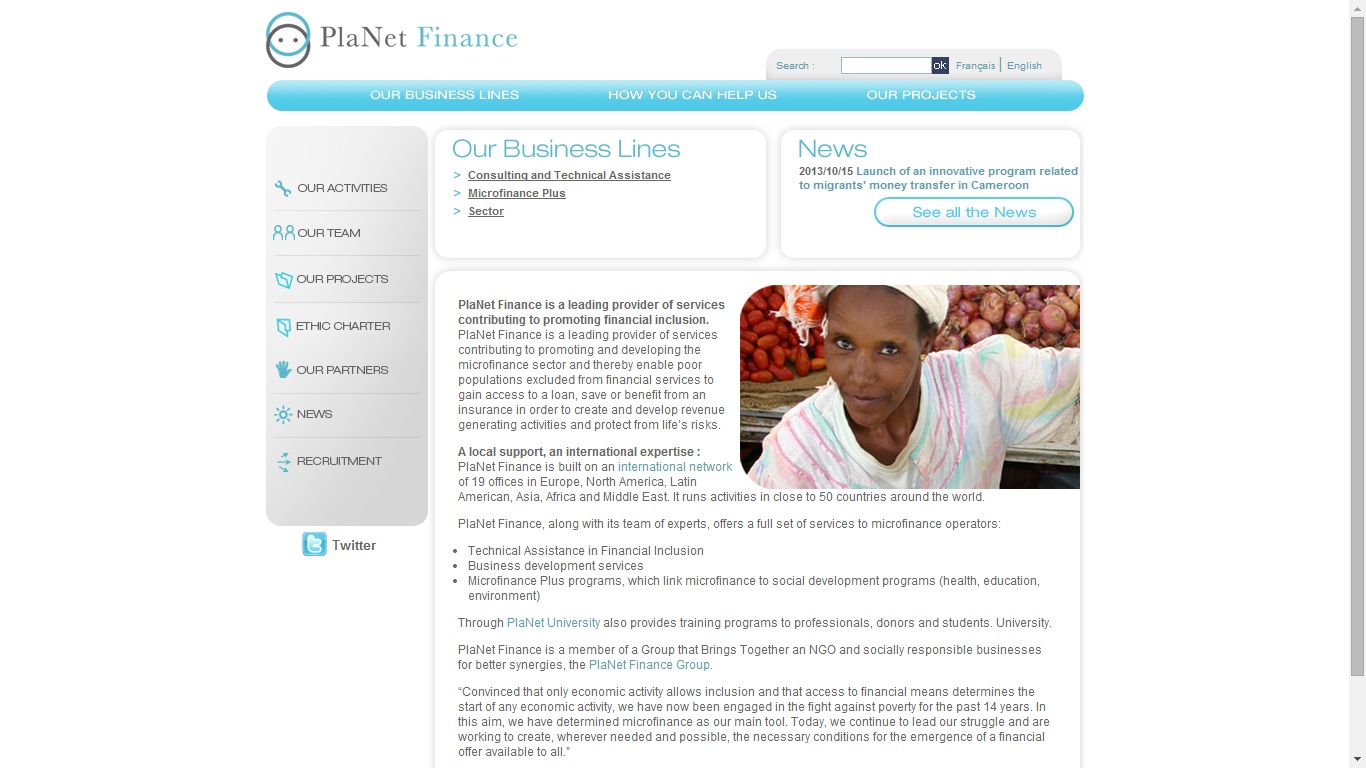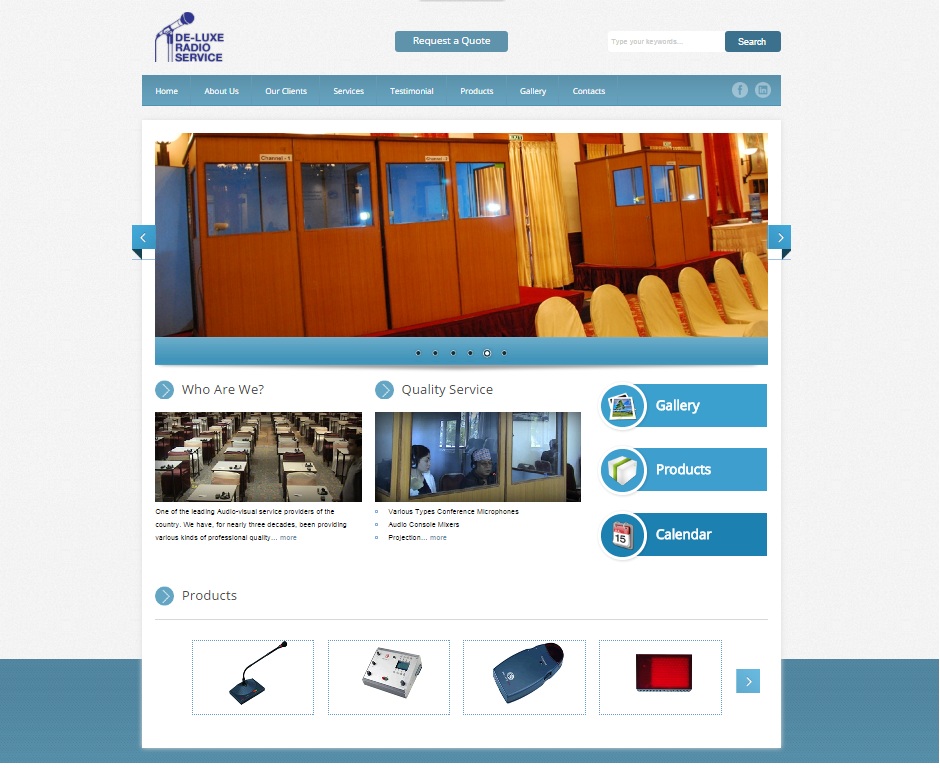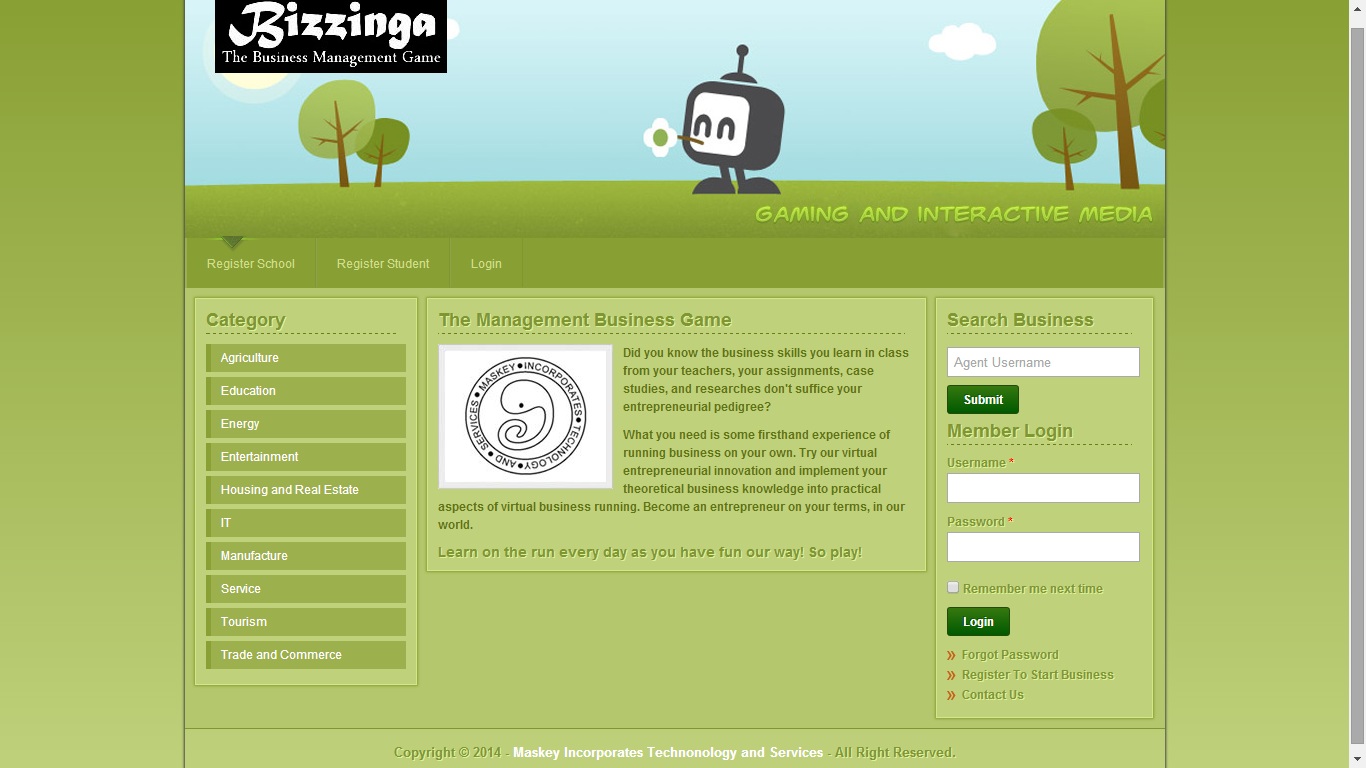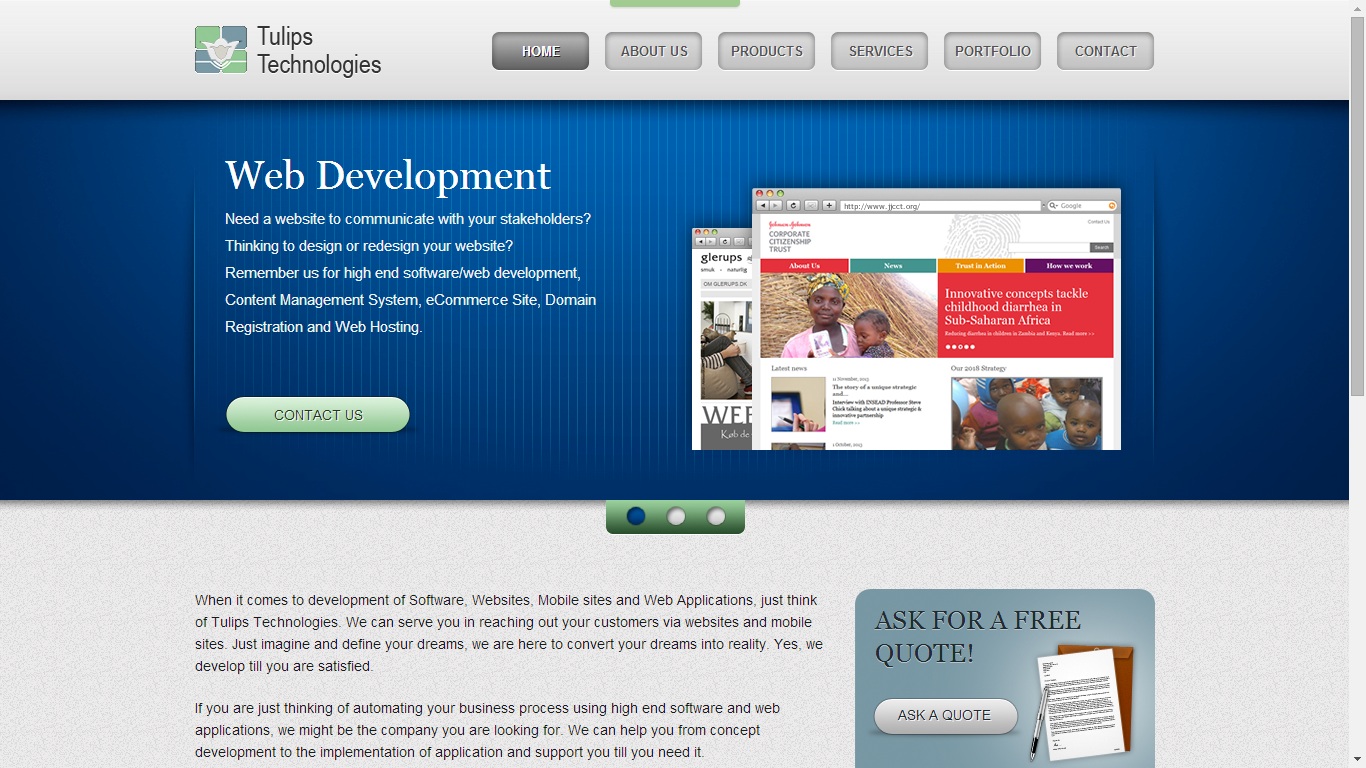-
Vacancy Announcement from Sunrise Bank Limited
Sunrise Bank Limited is a fast growing “A” Class Commercial Bank with diversification to various areas of functions and with rapid branch expansion target across the nation aims to increase the pace of quality growth. In this process t ...
Read More -
Vacancy notice from CDS and Clearing Limited, a wholly owned subsidiary company of Nepal Stock Exchange
CDS and Clearing Limited, a company established under the company act is a company promoted by Nepal Stock Exchange Limited (NEPSE) in 2010 to provide centralized depository, clearing and settlement services in Nepal. The main objective of the com ...
Read More -
Vacancy announcement from Civil Capital Market
Vacancy Announcement
Read More
Chief Executive Officer (CEO)
Civil Capital Market Limited (CCML), Head Office, Civil Trade Center Sundhara, Kathmandu, requests for expression (EOI) for the position of Chief Executive Officer (CEO)
CCML, ... -
Vacancy Announcement from Global IME Bank
Bank Overview
Read More
Global IME Bank Ltd. (GIBL) emerged after successful merger of Global Bank Ltd (an “A” class commercial bank), IME Financial Institution (a “C” class finance company) and Lord Buddha Finance Ltd. (a &ldqu ... -
Vacancy notice from Lumbini Bikas Bank Limited
Vacancy Announcement
Read More
Lumbini Bikas Bank Limited, a leading national level development bank invites application from highly motivated, dynamic and result oriented Nepalese Citizen for the follow ...
- ... Read More
-
I’ve spent almost 10 years interviewing thousands of candidates and developed a blue print for NAILING your next interview, follow these steps and you will dramatically increase your chances.
1. Know the position you are applying for ...
Read More -
Use these tips to write an effective resume that meets the employer's needs and gets you an interview.
Heading
- Type your name at the top in caps with large, bold type. Include your address, phone ...
-
Ever wondered why a Brit applies with a CV and an American with a resume? And why does an Aussie apply with both? There are a few differences between the two types of application documents and this article will straighten out your queries as well ...
Read More -
Wouldn’t it be great to know what answers the hiring manager is looking for? We asked, and they delivered.
By- Isabel Thottam
Being a mind reader would come in handy during the interview and make the whole getting-a-job thing ...
Read More

People across the globe started looking for new avenues for growth and opportunities and stopped being averse to trying their hand at something new. Adding a brand new dimension to your portfolio is certainly a necessity but most of the time what keeps you employed are some very simple skills that are often considered unimportant.Here are a few of them that are a necessity if you're looking to stay at the top of the game.
1. Communication
Whether it is verbal or otherwise, we are communicating most of the time. And when it comes to work, you will be thrown around among all kinds of people. From your boss, colleagues to clients, vendors or sometimes even a layman, your job could entail communicating with a few or a whole bunch of them. And it is an obvious fact that we communicate for various reasons and we expect to meet certain needs by communicating. However, when it comes to work responding appropriately and controlling your emotions is a necessity. Though quite difficult to do sometimes being a good communicator is a basic aspect that most job profiles demand, especially as you move up your career ladder. How you learn to do that, is completely under your control, but do it you must, if you're really looking for better opportunities and to improve your prospects in the job market.
2. Aptitude
No employer would want to either hire or keep a person who has no inkling to learn, evolve and grow. When they are in a position to take someone into their rolls they obviously expect to see the person show some interest and also offer ideas. Ever so often after people settle-in they tend to become complacent and start taking things for granted. A grave mistake in today's' volatile job market, because when a person is caught doing nothing more than doing what is expected, day-in and day-out without offering anything productive, they are bound to be shown the door, sooner or later.
3. Interest
People who are eager to learn will have a tendency to ask questions, inquire and be genuinely interested. Employers often look for this trait because someone who takes whatever is thrown their way will not really add significant value to the system. Processes and protocol is one thing but one who is not inquisitive enough to know why it should be followed is the one who will sit through meetings without wanting to know about anything. So learn to ask constructive questions, and be assured that unless they're totally impudent you will be creating quite an impression.
4. Manageable writing ability
You don't have to be a writer who can wax lyrical about almost everything. But when at work you'll be writing to people, no matter what your job entails. Though the notes that are sent today are short and crisp, most people don't realise that even that will have to be grammatically correct. Concise emails, presentations, memos, reports and every other form of writing that is so much an integral part of work life today is also a chief instigator of opinions. So cultivating the habit of writing well is a grave necessity if you hope to touch the right cord.
5. Creativity
Meeting needs effectively is what most of today's innovations manage to do. What employers look for nowadays is one's imagination and creativity that can facilitate the creation of innovative solutions. Competition is only getting fiercer by the day so getting ahead largely depends on thinking out-of-the-box, which is what any employer would expect their workforce to be able to do. There is always a different way of doing things, so when you're keen about your career, you will just have to find that different way before anyone else does.
6. Teamsmanship
When people interact on a day-to-day basis fissures are bound to crop up over a period of time. Unless you genuinely share a good rapport with someone, accepting whatever they say or expect you to do can seem improbable to say the least. However when it comes to work you practically will be left with very little choice, especially when the task-giver happens to be a superior. Nevertheless at work you have a job to get done and most certainly it is tied-up with a whole bunch of people who will have to work together to bring it to fruition. Thus learn to be a good team-player, because no one sticks by a person who stands apart and refuses to co-operate and co-habit.
7. Adaptability
Majority of people don't really stay in the same job role throughout their careers. And the ones who move up quickly are the ones who learn to adapt and pick up new skills as they move ahead. Developing new capabilities will not only solidify your footing in the market but also help you meander through volatilities. Even employers look for candidates who are willing to branch out, so make it a point to be flexible enough to assimilate new skills because at the end of the day, it will at the very least help you beat boredom!
8. Basic Computing
This is a skill that most people have today. Being part of a technological world, people are accustomed to surfing the Web and connecting online. Nonetheless making sure that you can do a lit bit more than that can go a long way in sealing a job offer. Even if the job that you do does not require sitting in front of a computer all day, make it a point to learn the basics so that if you're given an option to take more responsibilities you won't be left behind.
Back To List
